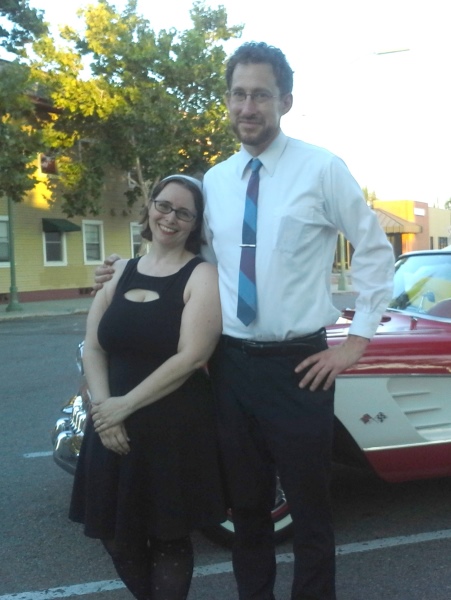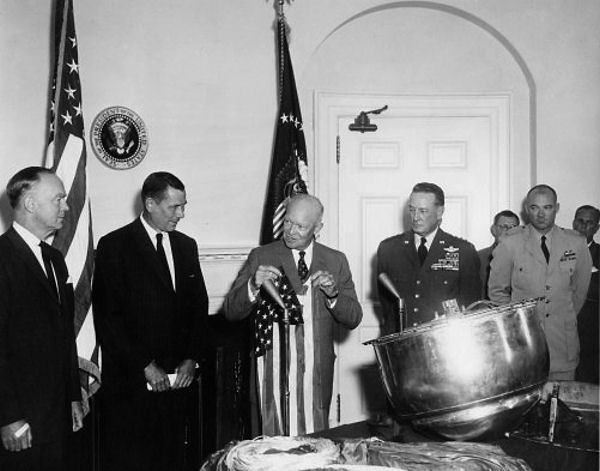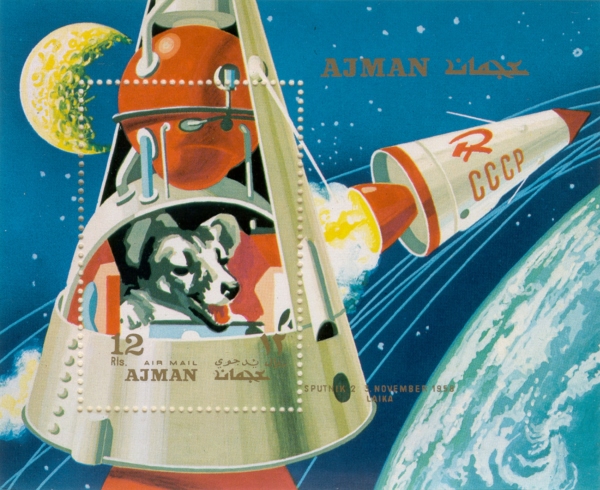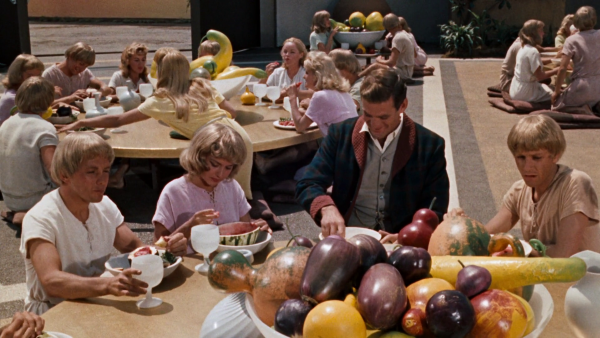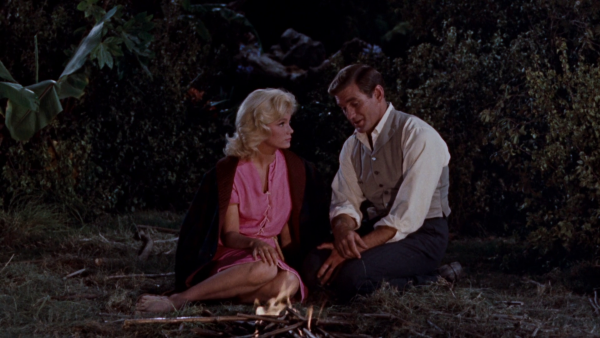The Journey presents that annual assemblage of scientifiction (stf or "steff") fans known as WorldCon!
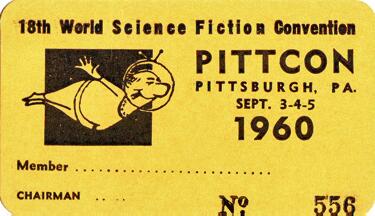
all pictures from fanac.org
Of course, I wasn't actually present at the con, it being held some 2500 miles away on the 17th floor of the Penn Sheraton in Pittsburgh. But I know people, and I have access to a million-dollar 'fax machine. Thus, even though the custodial staff is just barely finishing its sweeping up after some 300 attendees had a roaring great time, I am already able to bring you this report:
The primary purpose for a convention is to allow fellow fen (plural of fan) to mingle. Gordon Dickson likens it to a Gentleman's Club where adventurers can meet and compare notes before heading off back into the wild. Fred Pohl calls it a family gathering.
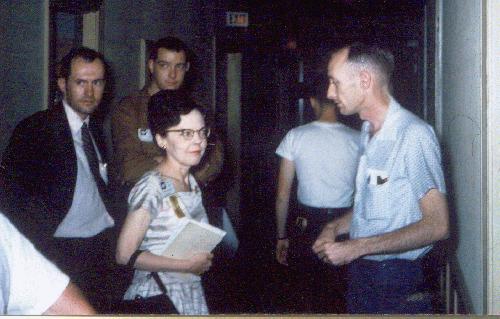

It looks like the demographics of fandom match that of publication: women are in the distinct minority, but they are present and often outsizedly significant.
Plenty of professionals attended, too.
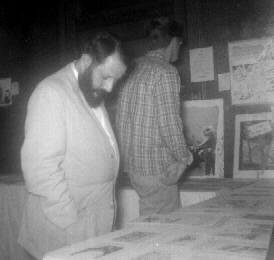
Avram Davidson
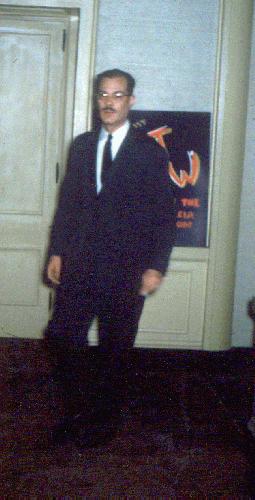
James Blish
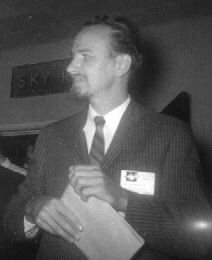
Ed Emshwiller

L. Sprague DeCamp
But it's not all about chatting up your friends. The convention offered all sorts of activities including panels, auctions (art, manuscripts, you name it), an art show, a dealers' hall, and a game room:

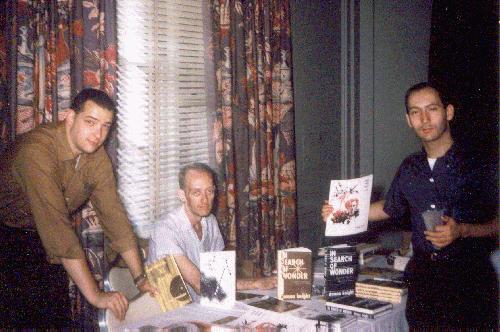

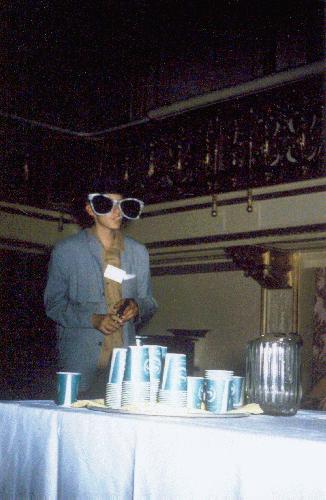
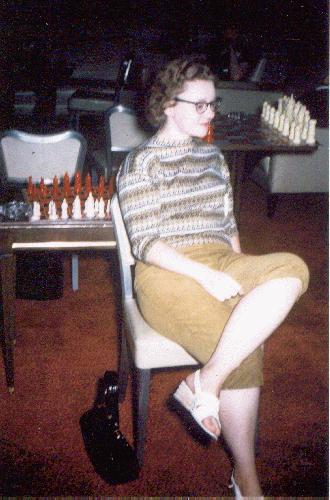
Saturday was dress-up day, with plays put on by club members and, of course, the night-time Costume Ball!




But what you've likely been waiting for with bated breath is the announcement of the Hugo winners. I, too, was keenly interested to see how the tastes of the Pittcon-going fans differed from my choices for 1959's best. As it turned out, we weren't too far off:
Best Novel
Starship Troopers by Robert A. Heinlein [F&SF Oct,Nov 1959; Putnam, 1959]
Nominees
Dorsai! by Gordon R. Dickson [Astounding May,Jun,Jul 1959]
The Pirates of Ersatz by Murray Leinster [Astounding Feb,Mar,Apr 1959]
That Sweet Little Old Lady by Mark Phillips (aka: Randall Garrett and Laurence M. Janifer) [Astounding Sep,Oct 1959]
The Sirens of Titan by Kurt Vonnegut, Jr. [Dell, 1959]
I didn't read a lot of novels in 1959, though I'd have thought Alas, Babylon would have beaten out the Astounding serials, which were 2 and 3 star stories. I'll let my readers tell me if the Vonnegut was any good. I can't argue with the winner, though. I liked it a lot. I understand Bob Heinlein was actually at Pittcon, which is unusual.
Short Fiction
Flowers for Algernon by Daniel Keyes [F&SF Apr 1959]
Nominees
The Alley Man by Philip José Farmer [F&SF Jun 1959]
The Pi Man by Alfred Bester [F&SF Oct 1959]
The Man Who Lost the Sea by Theodore Sturgeon [F&SF Oct 1959]
Cat and Mouse by Ralph Williams [Astounding Jun 1959]
Here, the fans and I are in virtually complete agreement. These are all 4 and 5 star stories, and the Keyes is not only among the best, but it is the longest (the Hugos combine all stories shorter than a novel into one category, whereas I divide them more finely). I might have excluded the Bester and the Farmer to include McIntosh and Simak, but that's a quibble.
Best Dramatic Presentation
The Twilight Zone (TV series) by Rod Serling [CBS]
Nominees
The World, the Flesh and the Devil (1959) [HarBel/MGM] Directed by Ranald MacDougall; Screenplay by Ranald MacDougall; Story by Ferdinand Reyher; based on the novel The Purple Cloud by M. P. Shiel
Murder and the Android (Sunday Showcase episode #1.5)
The Turn of the Screw (1959) [NBC] Directed by John Frankenheimer; Teleplay by James Costigan; based on the novel by Henry James
Men into Space (TV series) [CBS, 1959]
This one is interesting. I think mixing TV and movies creates too broad a category, and the result is MacDougall's fantastic and progressive The World, the Flesh and the Devil ending up as an also-ran. Moreover, The Twilight Zone was not even halfway through its first season by close of 1959–not that much to go on.
Still, it is a good (nay, groundbreaking) show, so I'm not complaining too much.
I haven't seen Murder or Turn. Men into Space, while laudable for its attempts to portray realistic space travel, has always been dull as dirt when I've tuned in.
Best Professional Magazine
The Magazine of Fantasy & Science Fiction ed. by Robert P. Mills
Nominees
Astounding Science Fiction ed. by John W. Campbell, Jr.
Galaxy ed. by H. L. Gold
Amazing Science Fiction Stories ed. by Cele Goldsmith
Fantastic Universe ed. by Cele Goldsmith
They'll be lucky if they have enough magazines to fill this category next year! Still, they picked the right "best" even if their #2 was pretty dreadful last year.
Best Professional Artist
Ed Emshwiller
Nominees
Frank Kelly Freas
Virgil Finlay
Mel Hunter
Wally Wood
All of these names should be familiar to you, and I'm not surprised good ol' Emsh topped the charts again.
Best Fanzine
Cry of the Nameless ed. by F. M. Busby, Elinor Busby, Burnett Toskey and Wally Weber
Nominees
Fanac ed. by Terry Carr and Ron Ellik
Yandro ed. by Robert Coulson and Juanita Coulson
JD-Argassy ed. by Lynn A. Hickman
Science Fiction Times ed. by James V. Taurasi, Sr., Ray Van Houten and Frank R. Prieto, Jr.
I should read the 'zines, but I don't. Ever since Mari Wolf stopped reviewing them, I stopped being interested. I also have a full dance card as it is. Nevertheless, the fanzines should not be overlooked–they are a stepping stone to the major leagues, writing-wise, and they also keep the fans in touch between conventions.
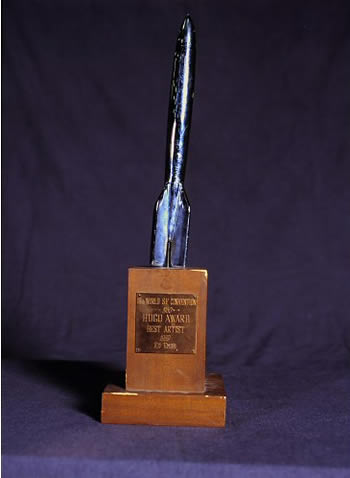
So, hats off to the organizing committee for another successful WorldCon! If you have any personal anecdotes from the convention, please drop me a line. In the meantime, I'll get cracking on this month's Analog. I'm not ashamed to confess that I emitted a little squeal of delight when I saw that Pauline Ashwell has the lead novella.




